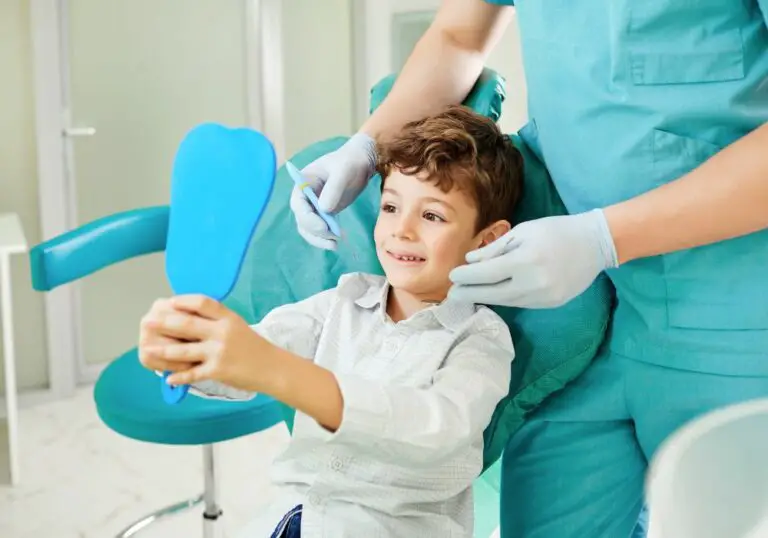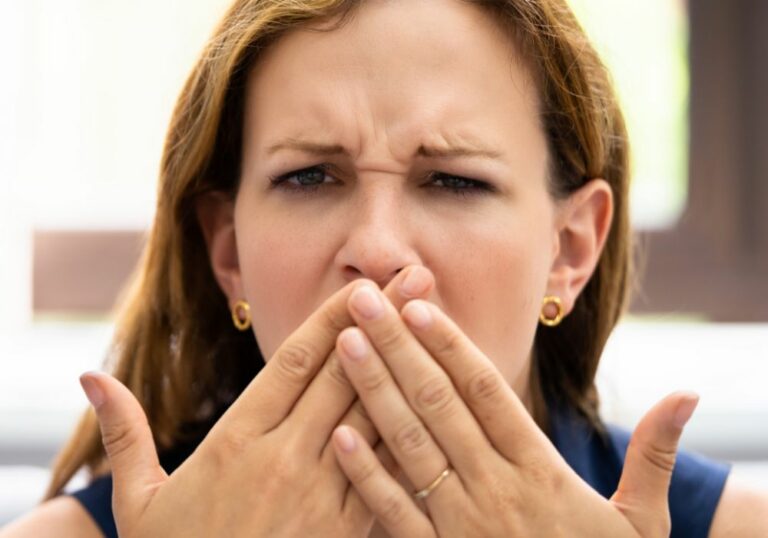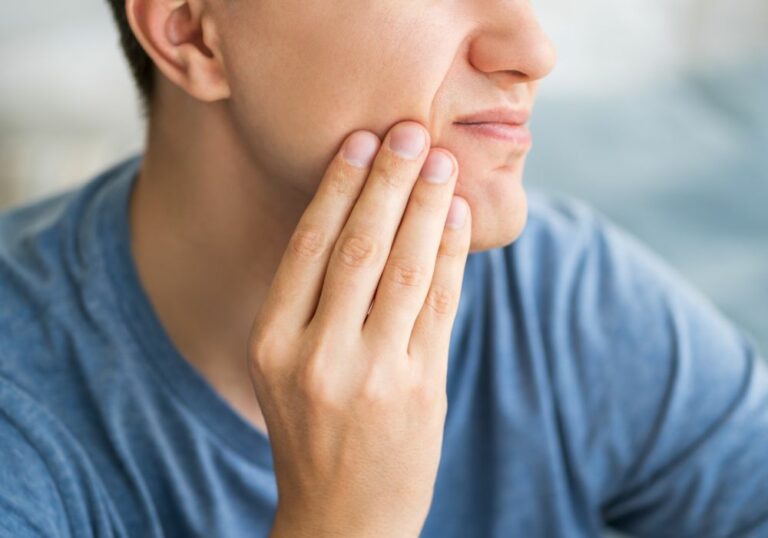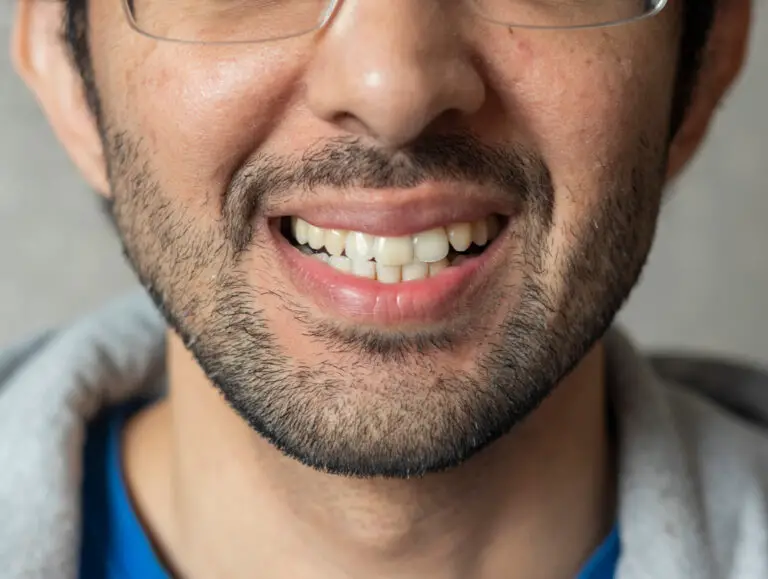It’s understandable to have plenty of questions when it comes to brushing a baby’s teeth. We have two sets of teeth which beg the question of how important is it to look after those milk teeth. And do you need to wait for all their teeth to come in before you get started?
Here we’ll answer all those questions so you get all the key facts about when to start brushing your baby’s teeth. Along with this, we’ll also give you some tips and tricks to make your life easier. Let’s get started by answering the key question.
When To Start Brushing Baby Teeth
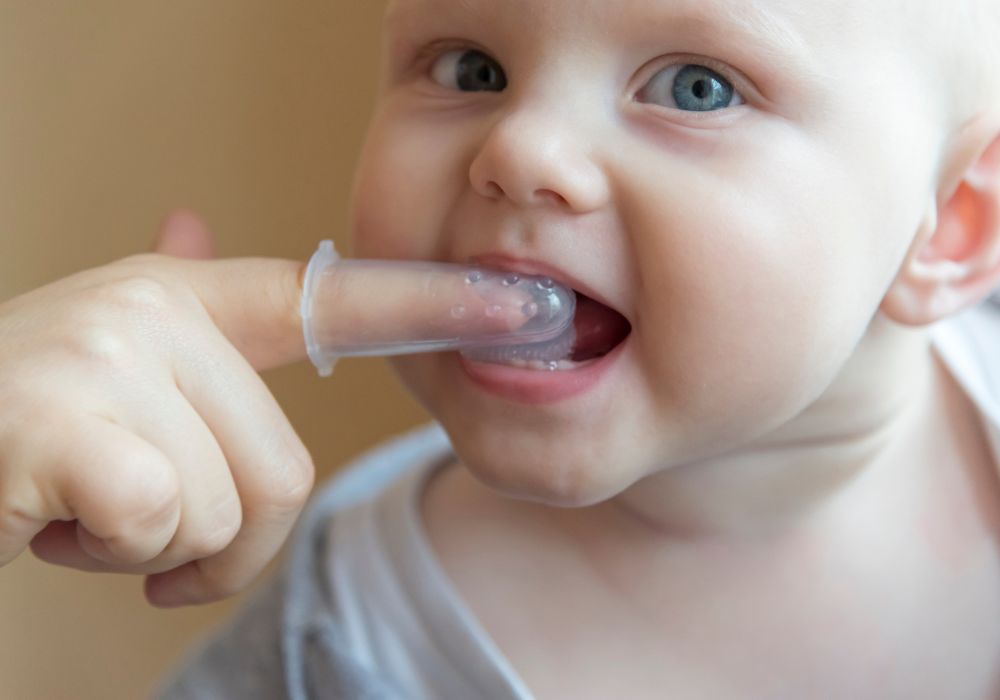
You should start brushing baby teeth as soon as the first one comes through. This will work to prevent tooth decay straight away and ensure that their teeth stay in great condition until their permanent teeth come in.
Some even advise that you should be cleaning a baby’s gums even before their first tooth to prevent any build-up of bacteria. Along with good oral hygiene, brushing early will also allow them to develop better habits as they get older.
Tips for Brushing Baby Teeth
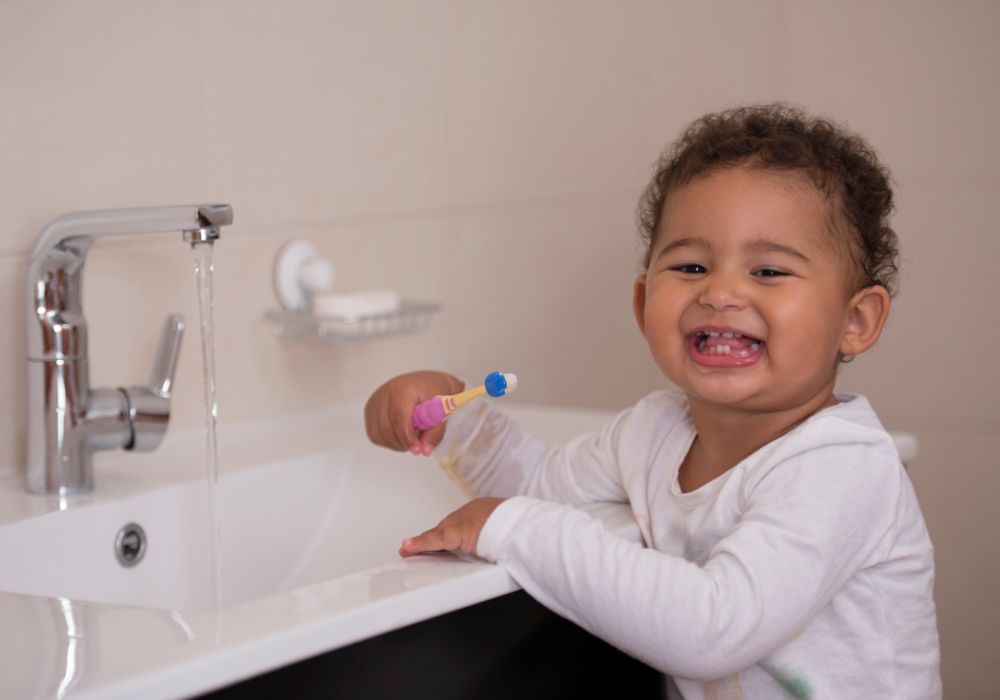
It can be hard to know exactly what you should be doing when brushing your child’s teeth. Here are a few simple tips which should answer a few of your questions.
- Amount – For children under three, only a small smear of toothpaste should be used. From the ages of three to six, you should be using a pea-shaped amount as this will be all they need to have clean teeth.
- Frequency – How often should you be brushing a baby’s teeth? The answer is as often as an adult should be, so twice a day for around two minutes. This should be once before bed and another time that fits in with your schedule.
- Method – For a baby, the most comfortable position is usually to have them sitting on your knee with their head resting back on your chest. For older kids, it’s best to stand behind them and ask them to tilt their heads up.
- Making It Fun – Brushing your child’s teeth can be a struggle. Try to make it fun and turn it into a game. As they get older, it’s usually best to brush your teeth at the same time as them so they feel more comfortable with it.
- Technique – As with adults, it’s best to brush in small circles to cover the entire surface of the tooth while also cleaning their gums. Once you have finished, there is no need to rinse their mouths if you have used suitable toothpaste.
- Independence – A young child doesn’t have the motor skills to properly brush their own teeth. It’s likely that they’ll need some help until they are at least seven years old.
When Should Children Start Getting Check-Ups?
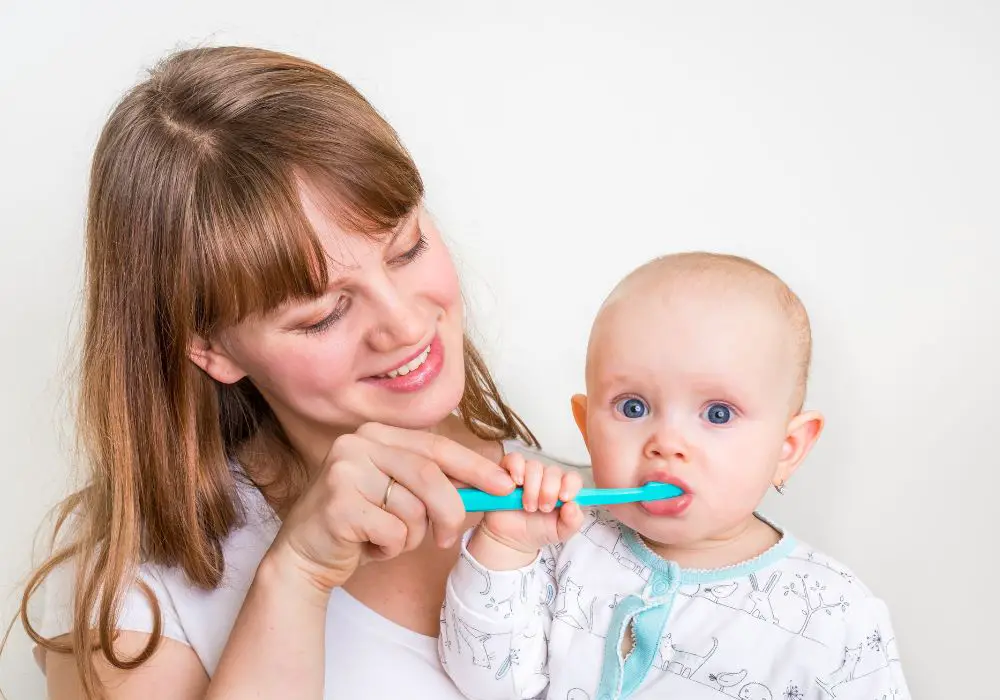
It’s easy to have a laid-back attitude to a child’s teeth. After all, the worst-case scenario is that they lose their tooth and it gets replaced in a few years. The reality is that looking after their teeth is important as it helps to prevent pain and future problems.
Even though they get replaced, the teeth are going to be there for quite a long time. For example, on average their canine will come through around the age of 18 months and won’t be shed until they are 10 to 12 years old.
Due to this, it’s vital to look after baby teeth with the same amount of care that you give to permanent teeth. They should get a checkup after their first teeth come in and they should have checkups as often as you do.
Children often have a lot of sugar and their teeth can decay very quickly without regular brushing. Taking them to the dentist early will also get them used to the fact that this is an important part of life.
The Link Between Sugar and Tooth Decay
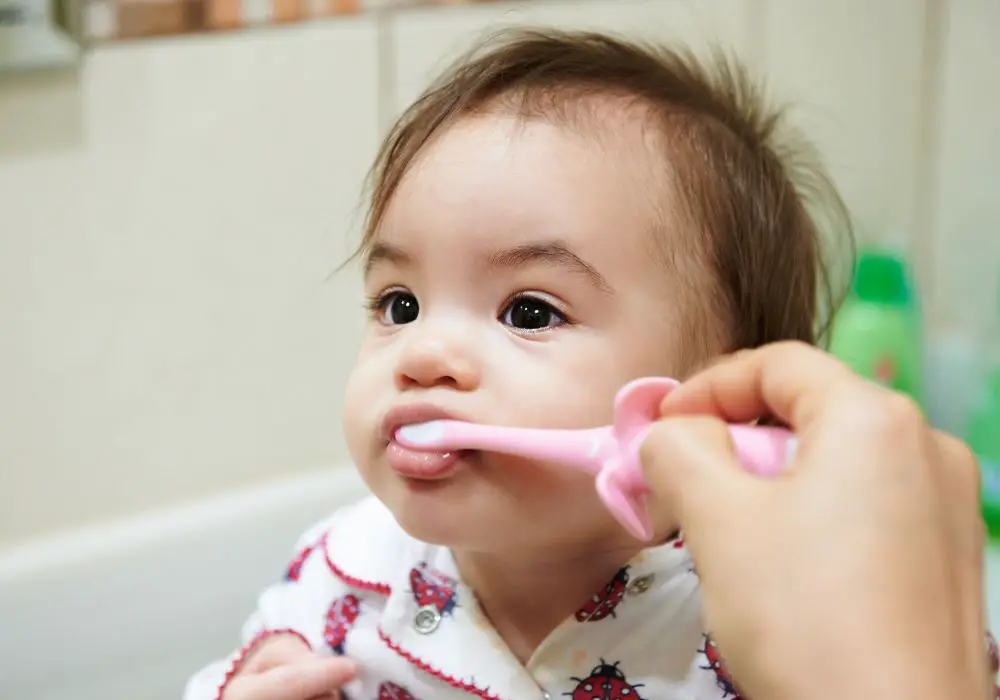
Many people know that sugar isn’t good for your teeth but just how bad is it and what steps should you take to ensure your children aren’t having too much sugar?
Not only is the amount of sugar in food and drink important but also how much contact it has with the teeth. For example, sweet drinks that are put in a formula bottle can bathe teeth in sugar for a long time. So can drinks with a lot of acid, such as citrus-flavored drinks.
There are also plenty of sugars in many things that are viewed as healthy, such as milk and whole fruit, although these are less likely to cause tooth decay. It can be confusing so next we’ll look at some tips to ensure they’re not having too much sugar.
Cutting Down on Sugar Intake
Here’s how to cut down on sugar in your child’s diet:
- Drinks – Make sure to avoid any sugary drinks completely. While fruit juices can be a treat, try to stick to just milk and water, especially in their first few years. If they do have a sugary drink, brush their teeth shortly afterward.
- Bottles – You should use bottles exclusively for breast/formula milk and water. When used with sugary drinks, they will bathe their teeth and increase the chances of tooth decay,
- Cups – From around six months old, it’s better to transition children to a free-flowing cup which will reduce the contact that the drink has with their teeth.
- Solid Foods – It’s best for children to eat savory rather than sweet foods. Whatever you buy from the shops, it’s best to look at the label to see how much sugar it contains.
- Fruit Juice – If they have fruit juice as a treat, then it’s best to ensure that it’s highly diluted. It’s also better to give it to them at mealtimes as the food will help to prevent any sugar from staying on the teeth.
- Biscuits and Sweets – You should be very careful when giving a child biscuits and sweets but it’s understandable to want to treat them every now and again. Look for sugar-free or low-sugar snacks, or treat them to something non-food related such as stickers, coloring books, and bubbles.
- Before Bedtime – Sugar is at its most corrosive when it can sit in the mouth overnight. Before bedtime and during the night, they should only be having water or milk.
- Check Medicine – Many medicines will include sugar to make them taste better. If they do, then either look for a sugar-free alternative or brush their teeth shortly after.
When To Remove Their Pacifier
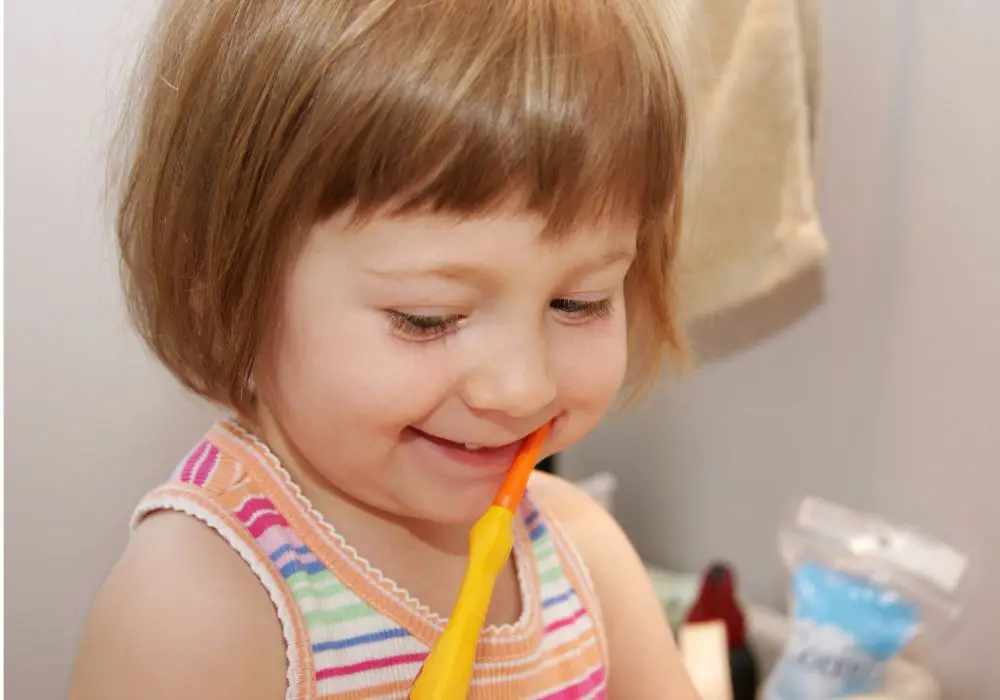
A pacifier can be a great tool for parents but it can also cause some issues. One of those is the chance that it can cause the teeth to protrude forward. This is often called open bite, which can be made worse by thumb sucking.
The best time to remove a baby’s pacifier is at six months old. At this time they don’t need as much constant soothing and haven’t become too attached to it. However, for many parents, the pacifier is still too much of an effective smoothing tool to take it away at this age.
The general advice is that from this point you shouldn’t try to take their pacifier away until at least two and a half years old. This is because they have developed an emotional attachment to it and it may be traumatic to take it away at this age.
During this period from six months to two and a half years, it’s best to reduce their reliance on the pacifier to help prevent open bites. Some ideas to do this include only using the pacifier at night or trying to comfort them with a blanket or soft toy instead.
Choosing a Toothbrush and Toothpaste
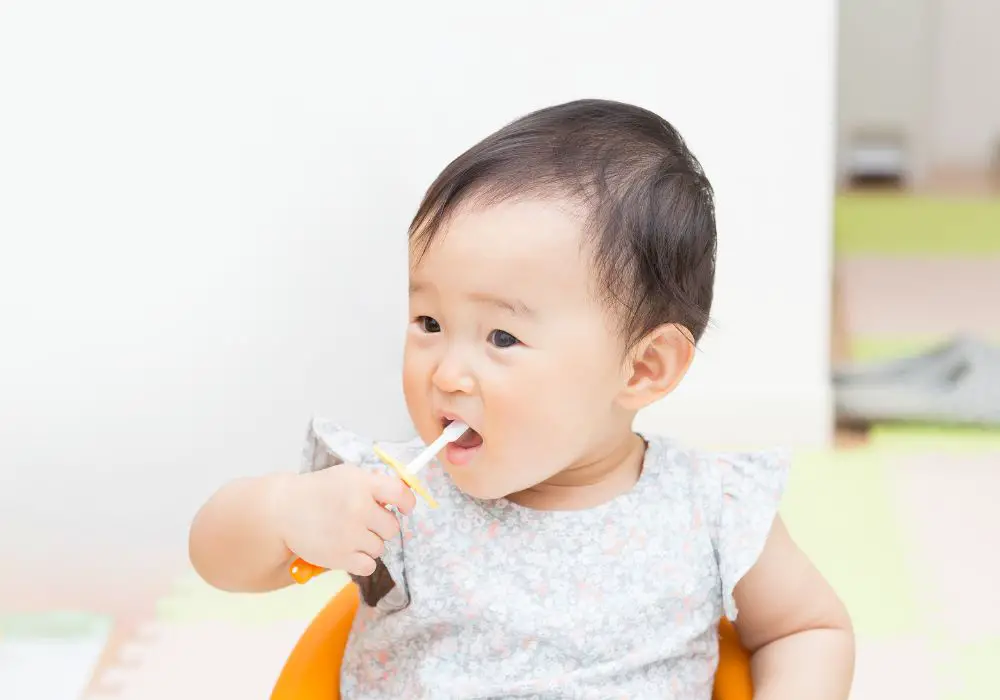
The same brush and paste that an adult uses isn’t going to be suitable for a child. An adult’s brush will most likely be too hard for their developing gums and our toothpaste has too much fluoride, as they can’t spit it out and rinse as we can.
You’ll want to pick a soft-bristled brush that won’t be too abrasive on their gums or wear away their enamel. It’s best to choose one with a small head that will comfortably fit into their mouths, but most packaging comes with age guides to make this easy to check.
There’s no evidence to suggest that electric toothbrushes are bad for them, so feel free to get one of these if you prefer. As for toothpaste, you just need to get one that has been specifically formulated for children and is suitable for their age range.
Conclusion
Even though they won’t last forever, brushing a baby’s teeth is important. As we’ve looked at above, some of these teeth are likely going to be in their mouths for over a decade and in that time tooth decay can cause serious issues.
You should brush their teeth as soon as they start to appear and also take them for dental checkups. This will not only take care of their baby teeth but will also give them some great habits which will help them when those permanent teeth come in.

